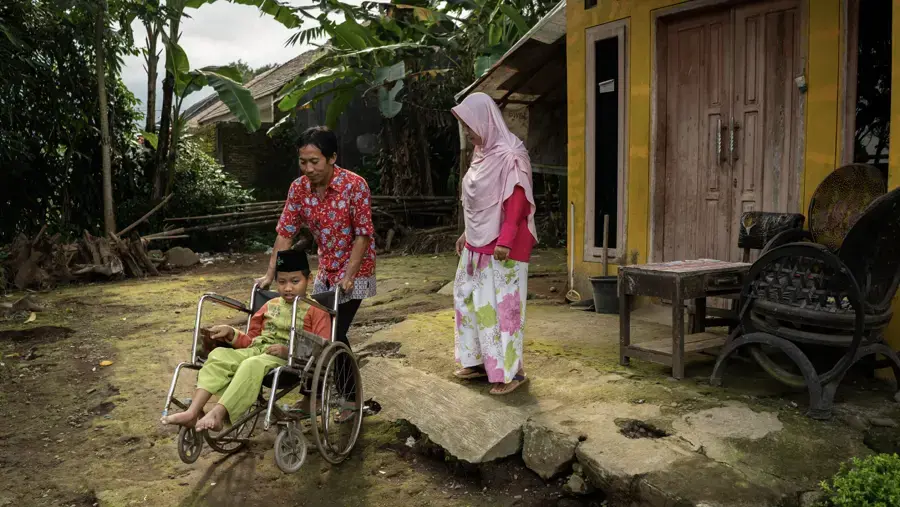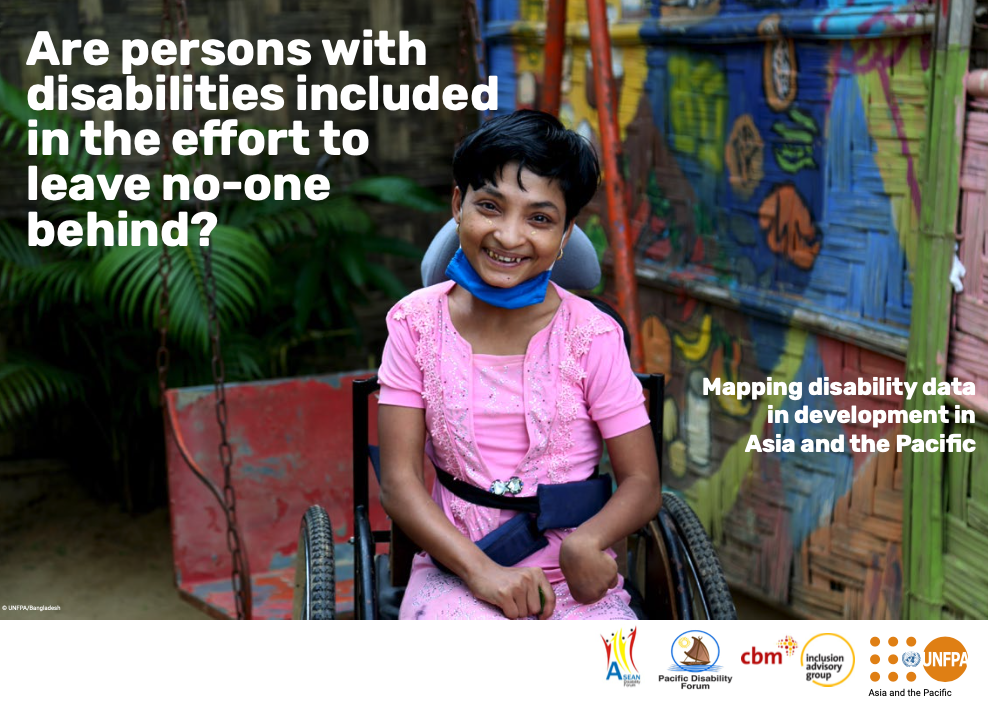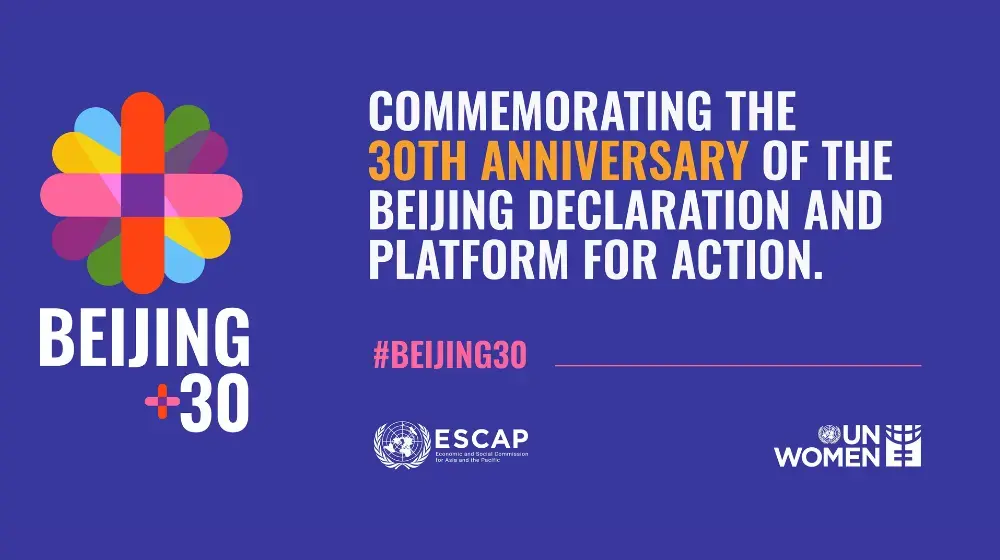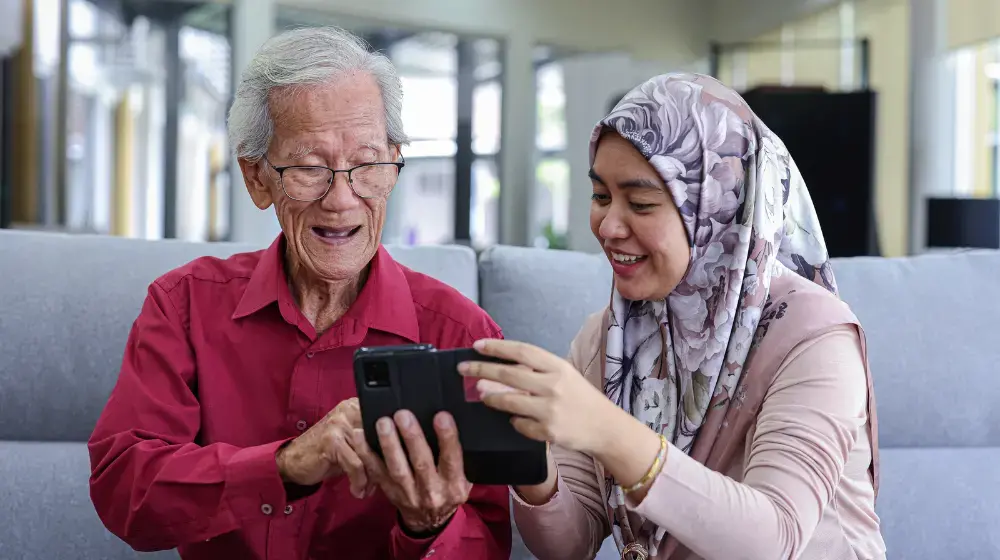Opinion
Data on persons with disabilities is one of the keys to unlocking a more inclusive future
Björn Andersson and José Viera
It is estimated that one in seven people in the Asia-Pacific region has a disability. However most countries in the region are unable to fulfill the basic human rights of this marginalised group.
Across the region, countries are chronically undercounting the number of persons with disabilities. The World Health Organisation (WHO) estimates that this diverse marginalised group represents 15% of the global population, yet the data collected by some countries only identifies 1% or 2% of their population as persons with disabilities.
The only way to understand this discrepancy is to examine the ways that data on persons with disabilities is gathered. When conducting a census or collecting routine public health information, countries ask questions to individuals and households to get a better picture of their lives. This data informs every aspect of public policy and service such as education or healthcare. Population data drives policymaking and it sets the priorities for how governments allocate budget to deliver services.
While data is central to any government decision making, when it comes to gathering data about persons with disabilities, there are major gaps that only amplify existing inequalities.
Censuses and other surveys may have poorly worded questions that can reduce the accuracy of data about persons with disabilities. Instead of using internationally agreed approaches like the Washington Group Questions on disability, questions which are susceptible to bias due to culturally diverse interpretations of disability are used, as well as disability-related stigma. Another common reason for unreliable disability data is that enumerators rarely receive disability awareness training. This training is needed in order to sensitize enumerators about the different types of disabilities and how to be inclusive, as well as how to anticipate and avoid bias when collecting data.
Inaccurate data contributes to ineffective policies so when the experiences and needs of persons with disabilities are under-represented in statistics, governments are more likely to underfund targeted support programmes and deprioritise efforts to improve access to services and/or participation in decision-making.
Without a clear picture of who requires what type of accessible services and where, countries continue to struggle to provide services where they are most needed. Countries can ensure police officers are trained to communicate in sign language with survivors of gender-based violence, build accessible health facilities and have accessible public health information and hotlines available, but without data, advocating for these services is a challenge.
As we emerge from the pandemic and work towards a more inclusive future, we must ensure that all persons with disabilities are accurately counted, and that their diverse experiences are accounted for in the design of development policy and programming. This is just the first step in a journey of creating more compassionate societies that deliver on the obligations of states to uphold human rights and create the conditions for everyone to thrive.
Without accurate, timely and disaggregated data, countries are unable to monitor the wellbeing of persons with disabilities or evaluate the equity and impact of development efforts. This endangers their commitment to ‘leave no one behind’ and undermines their obligations to the Convention on the Rights of Persons with Disabilities.
The pathway to gathering accurate data begins with understanding the gaps. We must empower civil society, including organizations of persons with disabilities (OPDs) and self-advocates, to be part of the solution. This means engaging with OPDs in the design of censuses and surveys, recruiting persons with disabilities in the teams collecting and analysing data, and equipping advocates with the tools to use the information and the insights from their own experiences to shape better data collection and ultimately policies and government budgets. For decades, disability advocates have been reminding everyone "Nothing About Us Without Us".
While the scale of the task of building a more accessible world can seem daunting, the solutions are simple: include persons with disabilities and their representative organisations in data collection, analysis and reporting and include OPDs in designing policies and budgets. UNFPA and partners stand ready to support governments in the region with resources and decades of census and data expertise to ensure that no one is left behind and that the rights and choices for all are upheld.
///
Björn Andersson is the Asia-Pacific Regional Director for the United Nations Population Fund.
José Viera is the Advocacy Director of the International Disability Alliance and the Permanent Representative of the Stakeholder Group of Persons with Disabilities.
REPORT: Are persons with disabilities included in the effort to leave no-one behind?
Mapping disability data in development in Asia and the Pacific
SUMMARY - METHODOLOGY - FINDINGS
WASHINGTON GROUP QUESTIONS - WHERE ARE WE?
OPINION PIECE - MEDIA RELEASE - PDFs
Learn more
On the Washington Group and related questions and guidance: https://www.washingtongroup-disability.com
On disability data advocacy: https://www.internationaldisabilityalliance.org/content/disability-data…






